Sid Nathan is vice president of external affairs at Rise Light & Power. In this role, Mr. Nathan oversees government and stakeholder relations, brand marketing, media relations, and policy advocacy. Mr. Nathan previously served New York State as the Communications Director of the Long Island Power Authority, the second-largest public power utility in the United States. Nathan earned an M.S. in strategic communications from Columbia University and a B.A. in communications and political science from Hofstra University
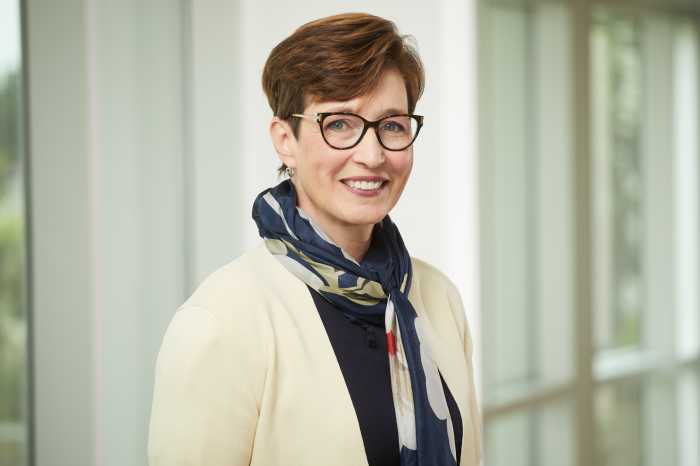
Patricia Nilsen
President and CEO, NYSEG and RG&E

Trish Nilsen is president and CEO of Rochester Gas and Electric (RG&E) and New York State Electric & Gas (NYSEG). She has held various positions within NYSEG and RG&E since she joined the company in 1992. Her prior experience in the companies was serving in communications, customer service, public affairs, and human resources. Ms. Nilsen received a Bachelor of Science from Alfred University and a Master of Arts from Syracuse University and Elmira College.
What is one thing your organization hopes to accomplish in 2024?
Upstate New York is the leader in renewable energy, and the question now is: How do we move all that green energy downstate? It’s exciting to see all the wind and solar farms proliferate across New York. Our parent company, Avangrid, has a goal of carbon neutrality by 2030, and we are a big part of that plan. Supporting those green energy goals and the State’s CLCPA are a big focus.
Do you have any advice for someone looking to pursue a career in your field?
Working at a utility was not in my plans. But life led to a corporate trainer role at NYSEG in the 1990s. I expected to stay maybe a year or two. I didn’t expect to find a passion for ensuring safe and reliable energy delivery, which found me here 34 years later. I kept saying “yes” to the opportunities presented to me. I think that a positive mentality is the key to a successful career.
What is one thing everyone can do to help protect the environment?
Studies show that 14M people will buy an electric vehicle this year. EVs offer a range of benefits compared to conventional gasoline cars, including reducing greenhouse gas emissions. Transportation accounts for roughly 27% of U.S. emissions, more than any other sector of the economy. One EV saves 1.5M grams of carbon emissions a year, and EVs will reduce our dependence on fossil fuels, so this is a good place for people to start.
What can policymakers do to aid in your organization’s work?
New York State has set a goal of 850,000 zero-emission vehicles by 2025 and electrification of the transportation sector will be a major contributor to a clean and environmentally conscious economy. We’re proud to be a key partner in supporting the state’s clean energy goals by building the grid of the future and ensuring electricity is being used as efficiently as possible to better manage peak use of the grid in support of this vision.
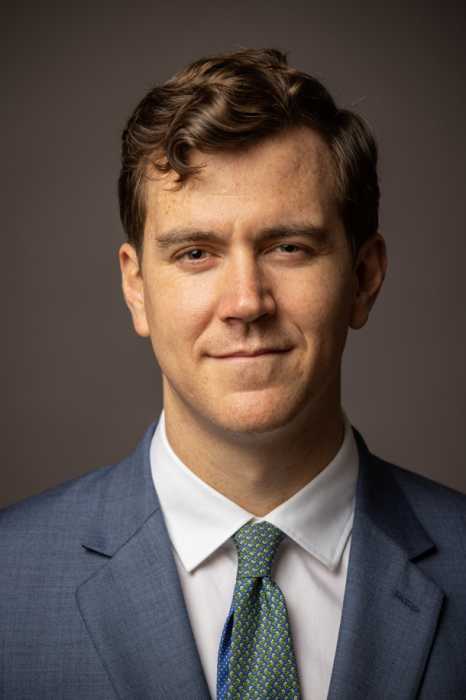
John O’Leary
Deputy Secretary for Energy and Environment, Office of Governor Kathy Hochul

John O’Leary serves as deputy secretary for energy and environment in the Office of Governor Kathy Hochul where he leads the Governor’s strategy for clean energy, climate action, and environmental protection. John oversees a portfolio of thirteen state agencies and authorities which are mobilizing billions in clean energy investment, implementing the $4.2 billion Environmental Bond Act, taking action to decarbonize buildings and transportation, and managing parks and public lands.
What is one thing your organization hopes to accomplish in 2024?
In 2024, New York will continue to grow the clean energy economy, protect energy affordability for families and businesses, and make concrete progress toward the ambitious goals set in the 2019 Climate Act. We have major clean energy projects under construction across the state. We’re launching the offshore wind industry. We’re developing an ambitious Cap and Invest program, growing a statewide EV charging network, and we’re supporting cost-saving energy efficiency and electrification of buildings.
Do you have any advice for someone looking to pursue a career in your field?
There are so many exciting opportunities in sustainability, environmental protection and renewable energy. Find your niche and don’t stop learning until you get to the frontier of your field. You’ll add the most value and feel the most fulfilled if you’re tackling the big open questions you care the most about. Find people you admire and ask for their advice and mentorship. These relationships motivate and inspire me to keep up the fight every day.
What is one thing everyone can do to help protect the environment?
Everyone can have an impact. How you use your voice, how you vote, the work you do, and the things you choose to buy are all ways you can help protect the environment. If you’re looking for inspiration, “All We Can Save” gives examples of how individuals have helped. Read it with a group of friends and commit to taking action!
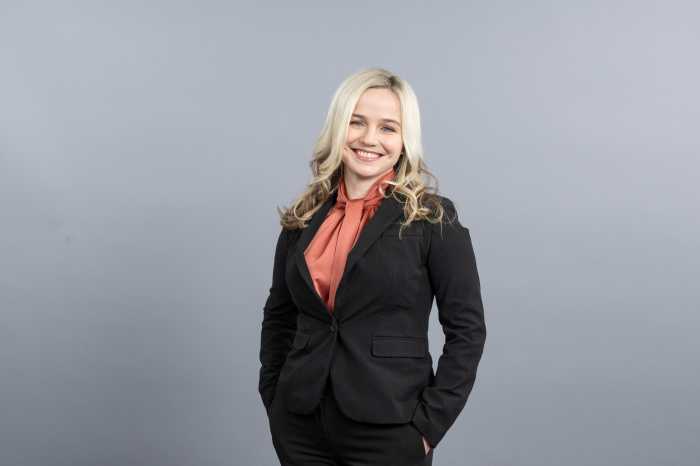
Katelyn O’Leary
Vice President, The Parkside Group

Katelyn O’Leary is a member of The Parkside Group’s government relations team, where she represents energy and telecommunications clients before state and local governments. Prior to joining Parkside, she served as senior policy advisor on the energy and environment team in New York State’s Executive Chamber, where she advised two governors on climate policy. Early on in her career, Katelyn held several different roles in the New York State Senate, including as legislative director.
What is one thing your organization hopes to accomplish in 2024?
The Parkside Group will be advising and working with its clients in their advocacy efforts and partnerships with both New York State and City governments to advance a variety of climate-related issues ranging from the deployment of electric vehicle charging infrastructure to the development of transmission that supports the interconnection of new renewables onto the grid, and the decarbonization of the electric and buildings sectors.
Do you have any advice for someone looking to pursue a career in your field?
For anyone interested in pursuing a career in climate policy, it is important to understand the technical terms and acronyms which may seem like alphabet soup. They can start by learning how to talk the talk by following the relevant NY state and city agency press releases, regulations, and programs. Attending climate-related conferences is also a great way to network with knowledgeable people in the field and ask them insightful questions about everything you’re learning.
What is one thing everyone can do to help protect the environment?
To anyone wanting to help protect the environment, education is the first step. It is important to understand the impact of our decisions as consumers and voters. You can find a lot of helpful information on both governmental and environmental advocacy websites. Once you have learned ways to reduce your own carbon footprint, you can go on to teach and become a role model for others to do the same.
What can policymakers do to aid in your organization’s work?
The issue of climate change is such a mammoth and wide-reaching problem that both the public and private sectors need to work together to find collaborative ways to address climate change. Policymakers can help as central conveners dedicated to the issues by creating authentic partnerships across all sectors, stakeholders, and communities so that we can come together to create a clean economy and a more sustainable future.
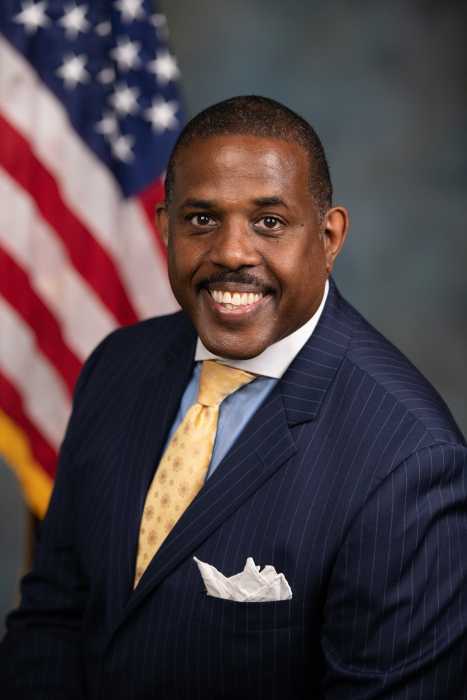
Kevin Parker
Senator, New York State Senate | Chair, New York State Senate Energy & Telecommunications Committee

State Senator Kevin S. Parker is committed to restoring the overall quality of life for the constituents of the 21st Senatorial District in Brooklyn. A lifelong Brooklyn resident, Senator Parker has been a Flatbush resident for over 31 years – nurtured, educated, and employed in the borough. Senator Parker is intimately familiar with the needs of the 21st District, which consists of many diverse communities.
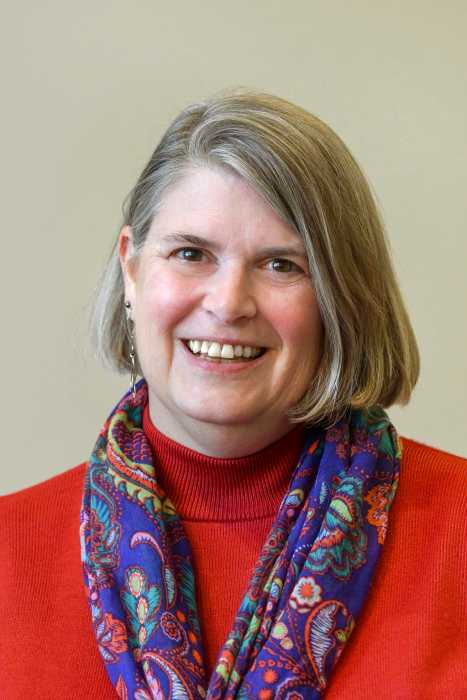
Deb Peck Kelleher
Interim Executive Director, The Alliance for Clean Energy New York

Deb Peck Kelleher joined ACE NY after over 20 years with the New York State Legislature, 10 of those years as the committee director for the Senate Environmental Conservation Committee and the Senate Investigation and Government Operations Committee. She leads ACE NY’s energy efficiency, transportation electrification work. Deb holds a master’s degree in environmental policy from the University of Wisconsin-Green Bay with a focus on environmental economics and a B.A. in economics from LeMoyne College.
What is one thing your organization hopes to accomplish in 2024?
New York needs a significant number of puzzle pieces to fall into place to meet our 2030 clean energy Climate Law goals. ACE NY is working to cut down the time it takes to go from planning to permitting to construction to operation so that as our state electrifies its cars and houses, we have greened the grid that will meet the increased demand.
Do you have any advice for someone looking to pursue a career in your field?
This is an excellent time to join the clean energy transition in New York State. There is a lot of momentum in New York as projects across the spectrum are being developed and constructed. There are growing construction opportunities in wind and solar, and building weatherization and heat pump installation. And the current need is for more electricians and electrical engineers. The climate transition is estimated to create an additional 200,000 jobs by 2030.
What is one thing everyone can do to help protect the environment?
Think about where your energy comes from – be it powering your car, heating your home or turning on your lights. As you make investments in these areas, think about an EV, a heat pump or installing solar panels. There are currently grants and tax credits available to support all these upgrades to a cleaner, healthier way of life.
What can policymakers do to aid in your organization’s work?
There are a lot of dedicated public servants working to make this transition possible, but we all need to realize time is of the essence. Climate change is already affecting us with smoke-filled summers and severe rain and snow storms. We need the state agencies to work together and recognize that their mission of protecting New Yorkers includes reducing our climate emissions and building more renewable energy.
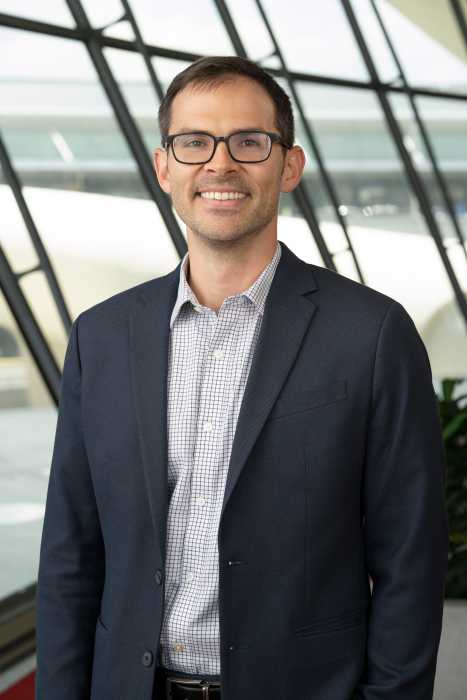
Doug Perkins
President and Project Director, Community Offshore Wind

As president and project director, Doug drives the strategy and implementation of the project and supports engagement with key stakeholders across local communities, including policymakers, suppliers, community leaders and elected officials. Doug has worked in clean energy for more than a decade and has worked for the past five years in offshore wind development. A native Long Islander, Doug graduated from Boston University with a B.A. in environmental science with a concentration in coastal ecology.
What is one thing your organization hopes to accomplish in 2024?
In 2024, we want to continue to connect with New Yorkers through listening and community service, to ensure the clean energy future is just and equitable. Whether it’s offering workforce training programs to prepare workers for new jobs in offshore wind, or funding community programs like reduced-cost childcare to break down long-standing barriers to economic opportunity, we’re focused on delivering the benefits of the clean energy transition to every New York worker, family and business.
Do you have any advice for someone looking to pursue a career in your field?
It’s never too early to start preparing and training for a career in offshore wind. From taking swimming lessons to pursuing degrees in engineering and marine sciences to interning with environmental research or advocacy organizations, this is an industry that brings together workers from all kinds of fields of expertise and training. And anyone, at any stage of their career, can start preparing for tomorrow’s offshore wind jobs today.
What is one thing everyone can do to help protect the environment?
Speak up! Whether it’s calling lawmakers to ask for policy changes that support clean energy development, forest and water conservation, or working to mobilize our neighbors to clean up the natural environments around us, your voice and actions are the most important ways to bring others to the table and make a collective impact. Protecting our environment requires everyone to do their part, and participating in those conversations is absolutely vital to this work.
What can policymakers do to aid in your organization’s work?
The creation of a robust supply chain and related infrastructure are vital to the success of our growing industry. With supportive policies, lawmakers can help accelerate new manufacturing infrastructure, transmission upgrades to accommodate power generated by offshore wind projects, and workforce programs needed to prepare New Yorkers for the clean energy jobs of tomorrow. We see these as opportunities for developers and lawmakers to work hand-in-hand to reach New York’s ambitious climate targets.
Dana Robbins Schneider
Director of Energy, Sustainability, and ESG, Empire State Realty Trust
Dana Robbins Schneider is senior vice president, director of energy, sustainability and ESG for Empire State Realty Trust. Dana defines, leads, and executes a comprehensive program including company and property level energy and sustainability initiatives and industry leading best practices. Dana takes a science-based, data-driven approach to analyze and implement actionable measures that drive energy efficiency and performance at the whole building, systems and tenant level including proactive planning for LL97 and 80X50.
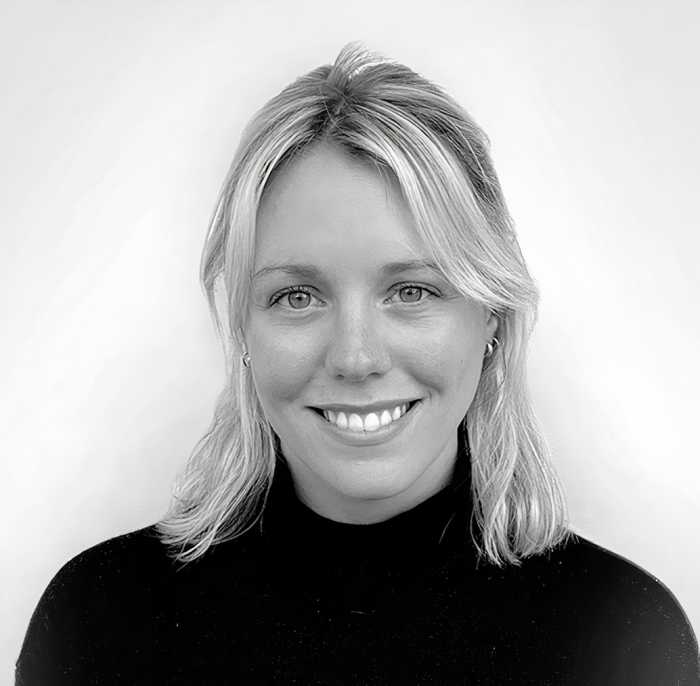
Rachel Roseneck
Vice President, Avoq

Rachel Roseneck is a driving force behind Avoq’s energy portfolio, leading strategic communications for essential energy projects across New York. With a wealth of experience in renewable energy, transmission, electrification, and climate tech, Rachel stands out as a leading strategist in corporate sustainability and energy advocacy.
Do you have any advice for someone looking to pursue a career in your field?
The energy and climate space is one of the most exciting sectors to be in – there’s an urgent need to change the way things have been done, and new technology, partnerships and economic forces are rapidly catalyzing innovation. Success in this dynamic field requires staying informed through reputable journalism and a constant eye on evolving trends.
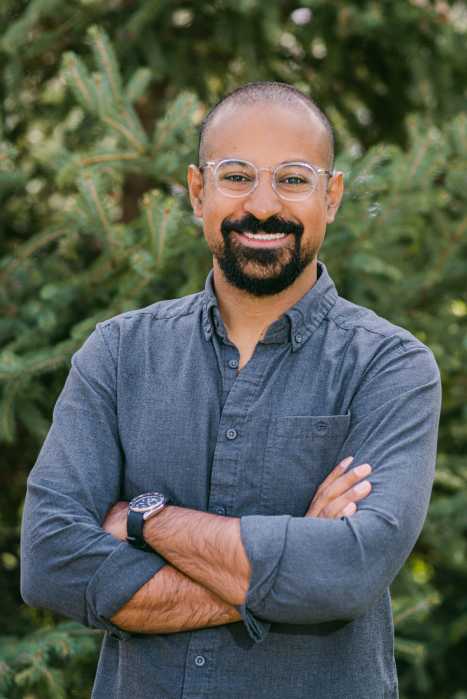
Stephan Roundtree Jr.
Deputy Program Director, Northeast and Mid-Atlantic, Vote Solar

Stephan is the deputy program director for the Northeast and Mid-Atlantic with Vote Solar, where he supports a team of expert policy advocates in campaigns to advance energy justice and a thriving solar economy. Stephan is a former staffer for WE ACT, where he grew up in the energy democracy movement. He currently serves on the board of NYSEIA, ACE NY, and the Conservation Law Foundation Massachusetts Advisory Board. Stephan is an avid cyclist.
What is one thing your organization hopes to accomplish in 2024?
Improving working people’s relationship with our energy system is central to Vote Solar’s mission – In 2024, we’re fighting to help move the New York Power Authority deeper into the fight to meet our state’s clean energy mandate and to ensure that the Authority’s “REACH” program delivers transformational energy bill relief to New Yorkers who need it most. We’re also pushing to expand residential solar tax credit and improve grid interconnection policies and utility accountability.
Do you have any advice for someone looking to pursue a career in your field?
The best advice I ever received as a climate advocate was to embrace trust and vulnerability as agents for change and to commit to building authentic relationships with colleagues. It’s said that change is made at the speed of trust, and in my experience with climate campaigns, that’s definitely true.
What is one thing everyone can do to help protect the environment?
Join the climate justice movement however you can. There are so many ways to come together to make positive change, like showing up to demonstrations, contacting your representatives, or canvassing for elections. Movement leaders are critical to this, but not everyone needs to lead – I think it’s incredibly impactful to simply consent to being organized and answer those calls to action.
What can policymakers do to aid in your organization’s work?
Vote Solar always encourages policymakers to be bold in committing resources and political capital to climate and social justice solutions. Sometimes transformative policies aren’t popular until after they’ve been enacted. We think the rewards are there for leaders, and for all New Yorkers, if our policymakers choose to do a cannonball instead of just dipping their toes.





